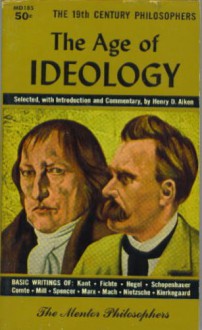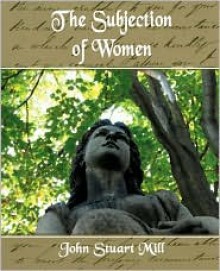
This is quite a helpful book for those who are studying the 19th Century Philosophers. Through the book Aiken gives an outline (of his version) of some of the biggest names in philosophy from the 18th and 19th centuries. Obviously the interpretation these philosophies does come down a lot how the rear actually understands what is being said (as well as what the original author was trying to say), especially in today's post-modern world - however my position is that most writers write with an intention, and no matter how subjective the writing may be, one needs to always approach it with at least some objectively, taking into account the time period and the personality of the writer among other things.
As mentioned, this book pretty much focuses on 18th and 19th Century Philosophers, including Immanuel Kant, John Stuart Mill, Karl Marx, and Frederick Nietzsche. It is a very helpful and handy book for those studying these philosophers as it can give on a starting point when attempting to understand their ideas and it can also assist one when one does go and read the writings themselves as some of them (particularly Nietzsche's) can be pretty difficult to follow or understand off the bat.
During the period covered in this book Europe was undergoing some significant changes with both industrialisation of manufacturing and the push towards the modern liberal democract. Much of Europe was still ruled by the authoritarian monarchies, but the Napoleonic Wars had brought the ideas of democracy through the regions which not only gave the population their first taste of freedom, but also planted the seeds of this period. Thus it is not surprising that quite a number of the philosophers here are German consider that this part of Europe was the region most effected by Napoleon's meddling in statecraft.
However it wasn't strictly the Germans (since Kierkegaard was Danish) as the British (such as Mill) were also developing their own philosophy, and we also have some, such as Marx, who moved to London and penned his political and economic treatises' Britain had arisen from a different base, having had their revolutions much longer back, and through this period had slowly been shifting towards a parliamentary democracy. During this period, namely the reign of Queen Victoria, not only was the British Empire at its height, but Victoria was slowly shifting the powers of the crown over to Parliament. Britain was having its own libertarian revolution, however this was taking form slowly, and interestingly enough, coming from the Tories. They were establishing universal healthcare and education alongside opening up the vote to non-property owners. They were also dispensing with the qualification of being a member of the Anglican church to sit in parliament.
Anyhow, this is simply giving a background of the period in which these philosophers were writing. The thought pattern was moving away from the objective philosophies of the church to a more existentialist philosophy, and this of course began with Hegel, who proposed the concept that two opposing ideas can come together to form a completely new idea, that is the Thesis and the Anti-thesis becoming the synthesis. This opened up further ideas that were developed by others such a Marx, who proposed the idea of dialectic materialism which is the concept that while history moves in a circle, this circle is constantly moving forward.
All in all, not a bad book, and I wouldn't mind reading it again sometime to try to get a better understanding of these philosophies, but that time is not now, and any way, it is hundreds of kilometers away hidden away in some shed.

 Log in with Facebook
Log in with Facebook 






